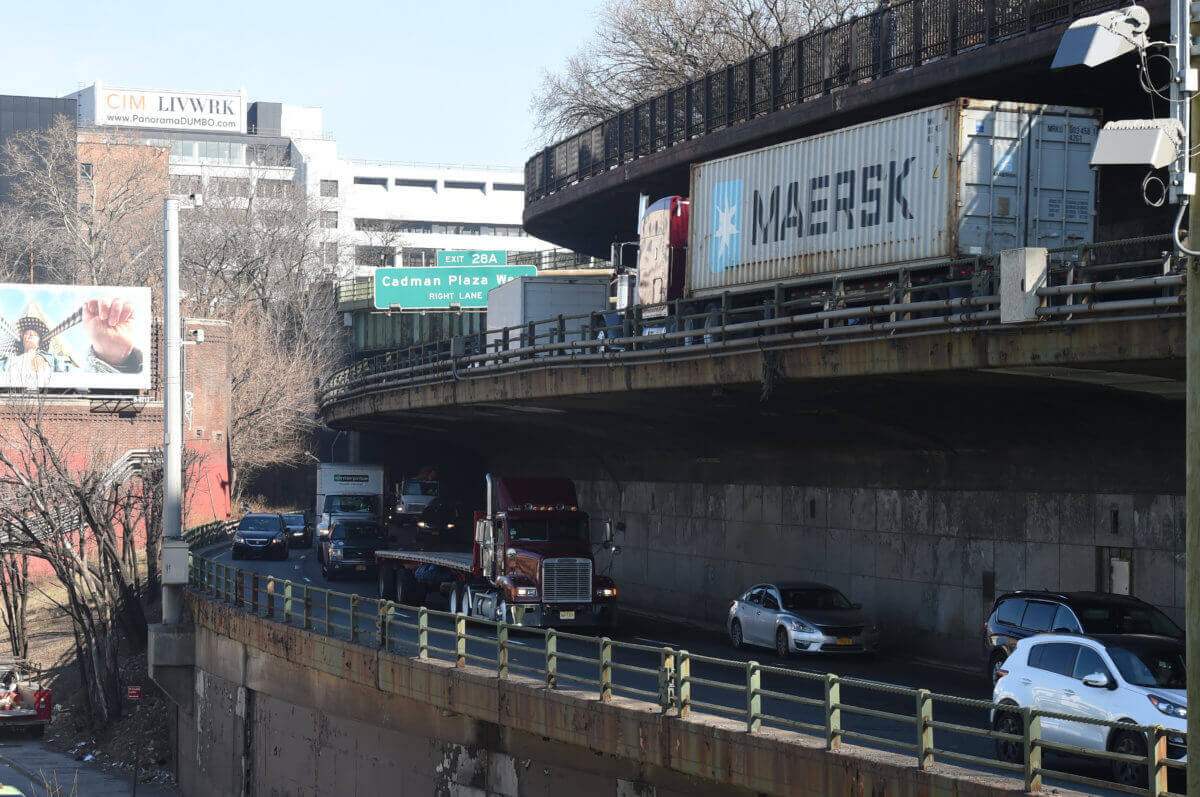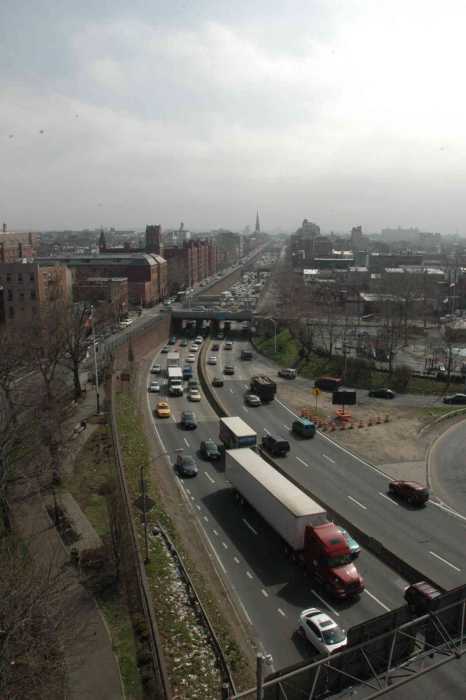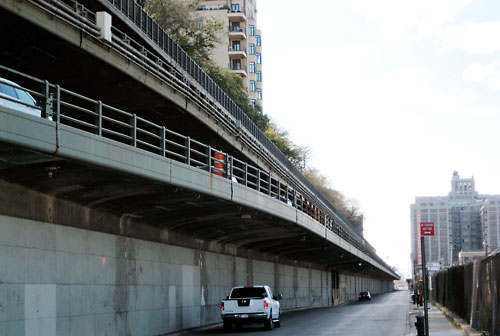Illegally-overweight trucks on the Brooklyn-Queens Expressway will soon be getting automatically ticketed, thanks to new state legislation.
Senator Andrew Gounardes and Assembly Member Jo Anne Simon authored bills in their respective chambers to detect and electronically ticket trucks above the allotted weight limit driving atop on the dilapidated roadway, which is in critical condition due to the crumbling Triple Cantilever section that runs through Brooklyn Heights.
The city’s Weigh-in-Motion (WIM) program looks to extend the lifespan of the roadway, and aims to use calibration techniques to determine the axle weights and gross weights of all vehicles that enter the BQE and issue tickets for trucks that do not meet regulation guidelines.
Previously, the WIM program was unable to proceed after the Department of Transportation informed the Senate that previous legislation did not have provisions for the program, thus requiring more legislation.
“Illegally overweight trucks have done significant damage to the BQE triple cantilever and the risk of a catastrophic event goes up every year we don’t take action,” said Simon. “These massive illegal trucks have no place in New York.”
The plan comes after the city delayed construction on the BQE, with work to prevent a catastrophic collapse of the Triple Cantilever (which runs from Atlantic Avenue to the Brooklyn Bridge) to late 2027.
In an effort to ensure that the roadway is safe to drive on until a more-permanent solution can be reached, transit officials are looking to crack down on overweight trucks that deal an undue amount of damage to the roadway.
Trucks over 80,000 pounds are not allowed to drive on the BQE, but multiple studies have shown that vehicles have consistently broken that limit.
Simon pointed to the recent collapse of the I-95 roadway in Pennsylvania as evidence that the new preventative measure is needed.
“The recent highway collapse on I-95 is an example of the real destruction that trucks can cause on our roadways, and we cannot risk a disaster like that on the BQE,” she said. “The WIM program will help extend the useful life of the roadway so that we can reimagine the BQE as a 21st century transportation corridor.”
In addition to extending the roadway’s lifespan, reducing the number of heavier trucks will also reduce pollution, which has been a major source of contention since Robert Moses erected the highway in the mid-1900s.
“[This will] reduce our reliance on polluting trucks and prioritizes climate justice,” Simon said. “I urge the Governor to sign this bill into law right away so that the City DOT can start ticketing these trucks. Thanks to my partner Senator Andrew Gounardes and to Council Member Lincoln Restler for getting the home rule message from the City.”
























